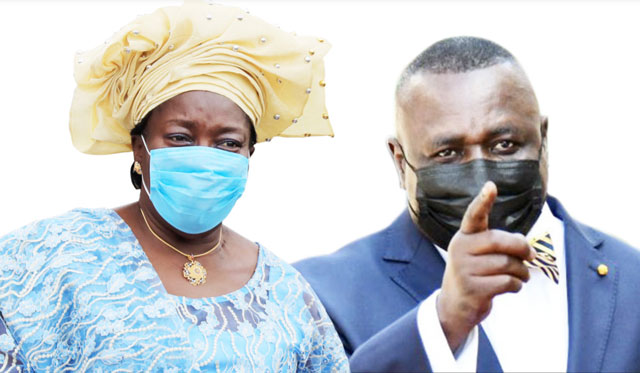
How Speakership race tested NRM and exposed the President
COVER STORY | Ian Katusiime | When Rebecca Kadaga, while battling to retain her position as Speaker of Parliament, picked expression of interest in the job forms at the NRM headquarters on Kyadondo Road in Kampala on May 19, she had a surprising message for the party Central Executive Committee (CEC).
Kadaga who was under pressure to quit the race in honour of an alleged tacit agreement from five years ago between her, CEC, and her rival for the job, erstwhile Deputy Speaker Jacob Oulanyah, said it would be undemocratic for the Central Executive Committee to sit five years early and say that in five years’ time so and so will be our Speaker of Speaker.
“Why don’t we do that for the president? Every five years he comes and says there is an election. What do we do?
“So you can’t come and say for us (CEC) we decided on the speakership five years ago. Are you deciding for us like the way cattle are herded?”
Apart from that alleged agreement, Oulanyah’s bid for Speakership has also been bolstered by an NRM landslide in Acholi and West Nile sub regions in the 2021 general elections. Team Oulanyah say Kadaga failed to deliver similar margins for the party and the presidential candidate Museveni.
In the Busoga region where Kadaga is treated as a colossus, Museveni lost to Bobi Wine in the presidential poll in Iganga, Jinja, Bugweri, Bugiri, Mayuge and Kamuli where Kadaga comes from. He only won in three districts; Buyende, Kaliro and Namutumba.
Kadaga’s dig at President Yoweri Museveni who has been unopposed flag-bearer of the NRM in six elections was interpreted as an affront. Museveni is the chairman of NRM and CEC which determine who runs or is kicked-out of any race for a party top job. Kadaga was, therefore, being either brave or brash; an unsafe move for anyone seeking nomination.
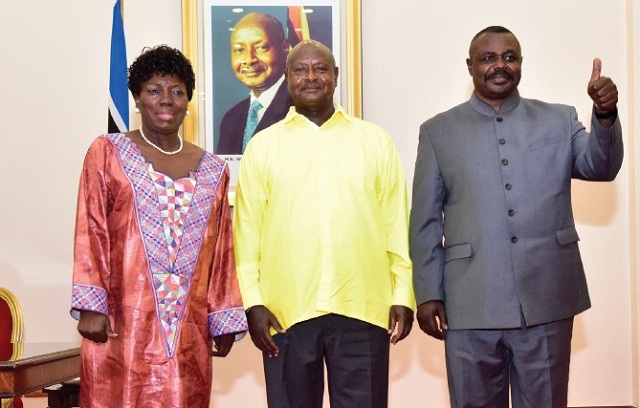
Surprisingly, however, some commenters picked on Kadaga’s tough talking to show how Museveni’s decades-long grip on his party could be slipping. Museveni, they said, is using Oulanyah to rein in Kagada who appears to have grown Icarus wings and was possibly flying too close to the sun.
They said the Kadaga versus Oulanyah fight for the Speakership was not the first within the party, but they pointed out that it is the first Museveni has failed to stop by a mere wave of his authority.
Therefore some observers are seeing Museveni’s maneuvers around the race for Speakership as a battle to have a leash on the party where his position is sacrosanct and his authority is traditionally unquestioned.
Unlike other historical parties in Africa like African National Congress (ANC) in South Africa, Zimbabwe African National Union-Patriotic Front (ZANU-PF) in Zimbabwe, and Chama Cha Mapinduzi (CCM) in Tanzania which exercise power with the ability to recall presidents, Museveni prefers a firm grip of NRM.
Museveni managed to rein in some members of the party during the chaotic primary elections in 2020. He got Francis Babu to step down from his contest for the position of Moses Kigongo, the first national vice chairman. The position did not go down well with Babu but Museveni and others inside the party felt he had found a way of fostering harmony in the top echelons of the NRM.
Traditionally this had been the role of Museveni as chairman. In 2015, he had a less daunting task- to ask his son in law, Odrek Rwabwogo, to do the same for Matayo Kyaligonza, for the position of NRM vice chairman western region.
But even back then, when Persis Namuganza who at the time was a minister and MP but neophyte in the party ranks challenged Speaker Kadaga for the position of second vice chairperson, Museveni left them to slug it out. The animosity between Kadaga and Namuganza was not new but the personal attacks they levelled on each other would ordinarily have got the NRM chairman involved. Kadaga floored Namuganza in the vote.
Museveni’s mixed message was not lost on Kagada. And when his tacit attempt to rein her in failed, the triumphant Kadaga appears to have decided to become even more unrestrained in whatever position she was going for.
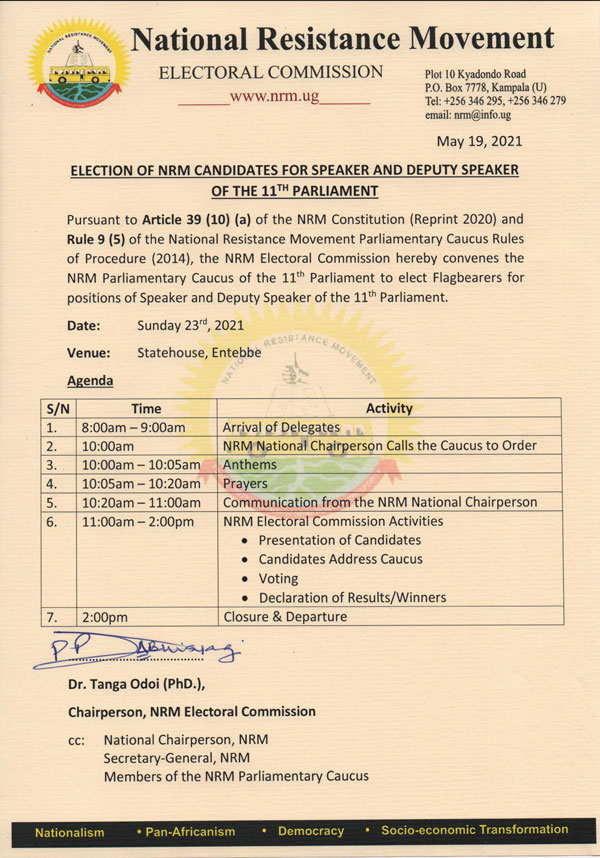
This time, Kadaga’s persistence in the race had forced CEC, which is the party top administrative organ, to shift goal posts and declare that the NRM caucus should vote for its flag bearer for the Speakership position by secret ballot. This was contrary to its constitution of candidates lining behind their preferred candidates. And they were criticised. But the party apparatchiks defended the move.
“This is the evolution of democracy within the NRM. The decision of secret ballot will reflect on the individuals. This is a process,” said Mike Mukula, the NRM vice chairperson for eastern region and member of the CEC.
Mukula also discounted any talk of tension in the party’s top committee over the Speakership race.
“It is the norm and practice. It’s the party which midwifes government. There is no disharmony at all.” Mukula says.
Significantly, Mukula said under the NRM constitution CEC has the power to designate who chairs sessional committees in parliament and other political functions in parliament and elsewhere but is silent on the positions of Speaker and Deputy Speaker.
Activist Speaker
As Kadaga has amassed more power and prominence, sources in NRM say the feeling is that she should be tamed.
Some members of the party were appalled that she was unapologetically saying that if it were not for her deliverance of the age limit amendment, Museveni would not have run again.
Some have compared the early tenure of Kadaga to that of former Speaker James Waphakabulo who had a short reign as Speaker from 1996-1998. Those who saw Waphakabulo chair parliamentary proceedings say he exhibited rare impartiality and intellect- a reason some say the sixth parliament (1996-2001) was the best and its quality may never be replicated.
It was also a time when partisan politics was still at a civil level and politics was not such a commercialised affair. His growing stature as a political figure is said to have compelled Museveni to appoint him as National Political Commissar- an obscure position that was aimed at dimming Wapa’s star as he was popularly known.
Wapa’s humility, historians say could not see him rebuff Museveni’s offer for another position, however low hanging.
Fast forward and this situation could not be more different.
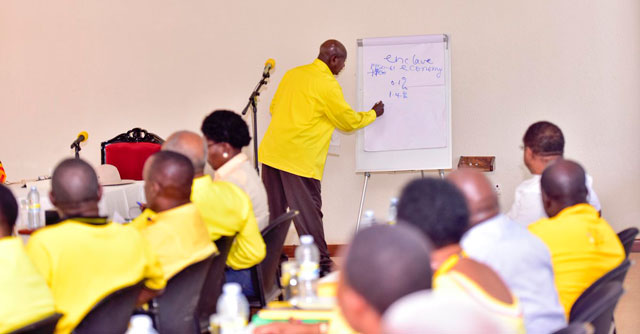
In Kadaga, Museveni faces an activist and ambitious Speaker with her own centre of power. She has saved NRM rebel MPs when NRM has wanted them evicted from parliament, defended MPs when Museveni has publicly criticized them, and defied Museveni on many issues.
At the start of the 9th parliament in Kadaga’s first year as Speaker, she received a lot of praise for the activism that took place in the House on many issues; oil bribery allegations, the censure of minister for presidency Kabakumba Matsiko and other corruption related issues.
In 2012, she won plaudits at home when she got into a spat with a Canadian Foreign Minister over homosexuality. Telling off Canada’s top diplomat that “Uganda is neither a colony nor a protectorate and therefore her sovereignty and cultural norms ought to be respected,” Kadaga drowned in sea of praise.
The exchange happened at an Inter Parliamentary Union assembly (IPU) in Quebec, Canada at a time of great debate over a proposed anti-homosexuality bill in parliament.
Kadaga soon won more praise for her firm stand pressing the government to probe the death of outspoken Butaleja Woman MP Cerinah Nebanda in December 2012. Her attempt to recall parliament from recess to discuss Nebanda’s death was the climax of this showdown between Museveni and the new Speaker. Museveni ultimately prevailed over Kadaga and the recall was defeated but the talk of a Kadaga run for president was getting a lot of buzz.
Unlike Oulanyah who has been showering President Museveni with praises since he announced his intentions to run, Kadaga has made a habit of making not so subtle digs at t Museveni, something that has riled Museveni supporters; some who also back Oulanyah.
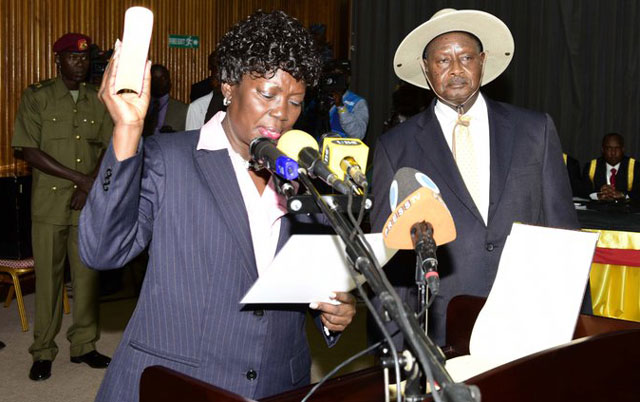
Kadaga did not waste any time expressing her disinterest in the vice presidency- a high enough position- if she quit the speakership race.
“Being a VP is a position below someone else. But in parliament, I am the head of the institution,” she told journalists in March.
Over the course of his long stay in power, Museveni has faced formidable opponents within his party. Kadaga is not the first. There was Kizza Besigye; the former confidante turned foe; Eriya Kategaya who shifted from childhood buddy to wavering critic, and the Bidandi Sali camp of the disillusioned.
Recently he has had malcontents like the so-called rebel MPs, Theodore Ssekikubo, Mohammed Nsereko, Barnabas Tinkasimire and others who always put up a fight. But the most vivid example of an intra-party challenge Museveni has faced was when Amama Mbabazi was said to be controlling party structures as Secretary General.
Museveni had backed Mbabazi for the post not once but twice. But Mbabazi’s long tenure as the party’s top technocrat also fuelled intrigue that he was carrying out mobilisation for his own ambitions.
Museveni outmaneuvered Mbabazi within the party, forcing him to humiliatingly step down from the position since he was “too busy as Prime Minister”. The friction between the chairman and secretary general forced Museveni to amend the party constitution and instead have an appointed secretary general.
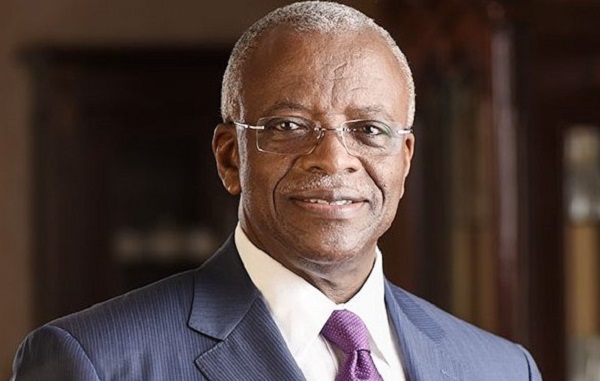
From the time Justine Lumumba was appointed in 2014, Museveni appears not to have had challenges to his authority in the party. It has been petty squabbling among lower cadres until recently when Kadaga has appeared to challenge his authority as chairman under the guise of the Speakership race.
Critics unleashed
Kadaga’s critics like Margaret Muhanga, MP for Fort Portal North Division, say CEC has final say on everything and she stopped short of saying CEC would not nominate Kadaga for the office she so badly wants to keep.
“If you have been going around undermining your own party and disrespecting your President, then it will be brutal for you. CEC will meet and it has the clips on everyone.”
“There is a person who said President Museveni wouldn’t be President without their effort. You can’t disgrace the President in public. The moment CEC doesn’t bring your name and you insist, it will be worse in the house,” she added.
Muhanga says Kadaga has been a beneficiary of the party’s traditions and conventions. Muhanga says it is how Kadaga had a smooth sailing in 2016 when CEC asked Oulanyah to step down from the speakership contest, clearing the path for Kadaga’s second term as Speaker.
Kadaga vehemently denies there ever being such an agreement. Other critics of Kadaga like government spokesperson Ofwono Opondo say one cannot keep quiet when they were a beneficiary of such tacit agreements and throw tantrums when they find the party’s traditions inconvenient to them.
Muhanga who could not hide her opposition to Kadaga said the numbers would not support anyone who tries to go it alone as an independent candidate on the floor of the House.
A number of NRM MPs also said they are always willing to go by CEC guidelines and vote for the fronted candidate.
The possible move by CEC not to nominate Kadaga for Speaker is not something Kadaga’s camp may have anticipated. Her sympathisers; like Barnabas Tinkasiimire, say CEC should be limited to interviewing the candidates but front both and leave the choice of voting to the NRM MPs.
Oulanyah is also a member of CEC as the NRM vice chairman for northern Uganda together with Kadaga. Emmanuel Dombo, the communications director of the NRM, says the 28-member CEC will exercise its prerogative and says Muhanga was speculating.
****
RELATED STORY
NRM Chief whip Nankabirwa says MPs under hostage, Oulanyah should save parliament
“That parliament will change. It will stop being a parliament of tension, pretense….the tension is too much”
CEC 11am Saturday
NRM caucus elections 8am Sunday https://t.co/WsBlQFOQXL
— The Independent (@UGIndependent) May 22, 2021
What goes on in NRM’s Central Executive Committee? https://t.co/lwCTs5Av8X
— The Independent (@UGIndependent) August 13, 2020
 The Independent Uganda: You get the Truth we Pay the Price
The Independent Uganda: You get the Truth we Pay the Price



